This is a cautionary tale about the limits of a woman’s endurance. It’s not about a long-distance swimmer or runner. It’s not even about an athlete.
It’s about a woman in her mid-40s faced with a terrible choice, one she never dreamed of making back when she committed to the words “in sickness and in health.” When a woman stands before friends, family, and her higher power, she can take those vows seriously, never questioning her obligation to fulfill that promise. And then, life happens.
What would you do if you were married to a successful executive who piloted his own planes, and you got a call one night? There’s been an accident. He’s in a hospital a few hours away. When you arrive, his face is unrecognizable. He’s in a coma. Doesn’t even look human. As he awakens, over the course of weeks and months you begin to understand the gravity of his traumatic brain injury and how it has changed your lives, your marriage. His frontal lobe is damaged, so he can’t filter his emotions. The prognosis is deeply uncertain and profoundly heartbreaking.
What would you do?
Facing the Hard Truth: Your Marriage Was Already in Trouble
What if, in the months before the accident, you’d fallen madly in love (“or was it lust?” the woman asks herself) with another man. You were considering leaving the marriage anyway but planned to go to counseling. You’d rekindled the flames of desire that often go dormant in motherhood and, while you want him, you want to make one last attempt to save your marriage, too. You are confused, and lost.
What if the flame is gone with your husband, but then you meet someone new?
Still the same answer?
Now consider one other angle. What if you’re the mother of two small children, one of whom has just been diagnosed with autism so you have to get him the extra help he needs in school, maybe even change schools?
And what if your husband was the main breadwinner, and you were now responsible for trying to keep the bank from foreclosing on your house? There’s not even a will. What if the unthinkable happens? Hasn’t it happened already?
The Going Gets Even Tougher….
Then, what if you’re hospitalized yourself during all of this? What if you’d spent three years taking the kids to visit their dad who couldn’t carry on a meaningful conversation? Whose brain injury meant his angry outbursts were unintended but still hurtful?
And what if you’d taken him out of the care facility to try to spend time with your children, only to find that he was going to need a lot more care than you could possibly physically give him?
You may think you know what you’d do. But do you?
How One Woman Wrangled an Impossible Situation
For Rachel Michelberg, author of the award-winning memoir, “Crash: How I Became a Reluctant Caregiver,” it was an agonizing decision.
“At the time, it was like, I’m not sure I can take him home. I just literally didn’t have the strength to do more, both physically and emotionally, to get through the day. And then as far as taking care of what other people thought, I didn’t have the strength for that either,” she said.
She had a few supportive friends but most of them thought her decision turned on what’s best for her kids.
I just literally didn’t have the strength to do more, physically or emotionally, to get through the day.
“There was never a mention of ‘and you had your life to live,’” she says. “But if I wasn’t functional, it would absolutely negatively affect them, so you can’t really separate the two. And yet, you still have to.”
Rachel says it took her 11-1/2 years to write the book with a lot of pauses in between. “I had this story I had to tell. I felt compelled, but I also didn’t want to do it too soon,” she says.
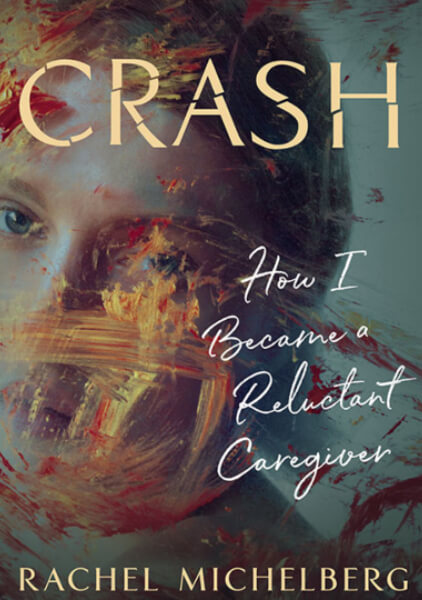
The Right Time to Share Her Story and the Trauma
For one thing, she wanted to wait until her daughter was in high school. As of this writing, her daughter has still not been able to read it.
“About three and a half years after the accident I thought maybe this is something that, through sharing my experience, can help other people to find their voice and to find their strength in standing up for themselves,” Rachel recalls. “It could help them say, ‘I can’t do this, even though it’s expected of me, you know, I can’t do this.’”
I met Rachel when she hosted a “Happy Women Dinner” in Los Altos, California, for another author. Lyz Lenz was there to talk about her own memoir, “This American Ex-Wife,” a manifesto on divorce and the ways women get trapped by the expectations of a modern American marriage. After reading both books, I couldn’t help comparing the two. They’re both about women aching to do the right thing and honor the commitment to their respective husbands. Yet each of them stood up and said “no more,” even as society expected them to shut up and be miserable for the rest of their lives.
It was a matter of saying, ‘No more,’ even as society expected her to shut up and be miserable for the rest of her life.
“What are our obligations?” asks Rachel. “If it was one of my kids who had suffered the same ordeal, absolutely, of course I would have been 100% there,” she says.
But is the bond with another adult, even if you love him (or her), strong enough to withstand the loss of yourself?
Leaving a Marriage: Should She Stay or Should She Go?
“It’s like the instruction to put your oxygen mask on first. I wasn’t functional. And my kids needed me. I just wasn’t physically capable of doing both although I tried. For three and a half years, I tried,” Rachel says.
After much therapy and thought, she made some hard decisions. She had ended the affair, which she describes as a blip, soon after her husband’s accident. (Adding to her stress, the man’s wife stalked her relentlessly when she learned about the relationship).
Rachel also made the ultimate hard decision to file for divorce. She only did so after a lawsuit regarding the accident brought David enough money to be cared for the rest of his life. He now lives abroad with a caregiver, next door to his sister, though Rachel says these days “he’s not doing well, unfortunately.”
The decision to divorce wasn’t socially acceptable, but she made that hard decision.
“It’s not socially acceptable,” she observes of her decision to divorce. “Some of the reviews I got from the haters, said things like ‘I hated this book. She was so selfish.’ And I was like, ‘You missed the point!’”
Rachel confided something else in this brutally honest recounting of her life. “My daughter asked me ‘Mom, would you have stayed married if dad didn’t have the accident?’ Because she knew we were having trouble. And I said, ‘To be honest, probably not.’ Yeah, but I’ll never know, right?”
Exposing Secrets
I asked why she chose to be so vulnerable and expose her secrets, even her innermost thoughts.
In the book, she reflects on such topics as whether the medical teams should have gone to such extremes to save him, considering his condition. “I had to go there,” she says. “I just couldn’t write it any other way.”
Rachel was ostracized by her husband’s family when she told them she couldn’t go on.
Rachel was ostracized by David’s family and friends when she told them she couldn’t go on. Some of those relationships have been repaired, and she’s remarried now to a physicist who shares her love of books, music, and theater. As an opera singer and cantorial soloist, she is in demand as a private voice teacher. She named her business “Free Your Voice,” and there are parallels between her business of helping people find their voice and her life story.
The Childhood Pain That Informed Her Choice
Rachel reveals that her childhood (her parents’ marriage, to be specific) informed her attitude towards what marriage should and shouldn’t be.
“My father was sent to Japan in the service, and [my mother] was on a ship to go be with him. There was a rabbi on the ship, and she said to him, ‘I think I made a mistake. I don’t want to be married this young.’ She was just 18,” Rachel shares. “But the rabbi just said, ‘Oh, no, no. You need to be married. And he’s a great guy.’ The rabbi didn’t even know him! He just shut her down. And then she was unhappy for the next 27 years.”
Her mother had been pushed into marriage at age 18 and was unhappy for decades after. Rachel didn’t want that to be her path.
Rachel says she and her mother were incredibly close, even as her mother moved from social drinking into alcohol addiction. She described her mother as shut down most of her life, until she told her husband she wanted to go to college. He told her she was being ridiculous and didn’t need to go to college, but she stood up to him.
“When I was young I looked at my mother’s life and thought, I don’t want that to be me. And I felt really sad that she was unhappy, and I wanted to help her, but I was a child and I couldn’t fix it,” Rachel said.
Finding a Path Forward
She believes that marriage vows can sometimes be a trap if you don’t feel free in your marriage. She admits that she saw her situation as a case of “My life is over.” Leaving her marriage was a way to reclaim her life.
For Rachel, the book is a way to connect with others in a similar situation, but it’s also about processing the tough emotions swirling around her situation.
I felt guilty, and, in my sobbing therapy sessions, the guilt turned to shame.
“I felt guilty, and I think the sobbing sessions I had in my therapy, that’s when the guilt morphed into shame. That’s when you really feel like your heart and your soul are ripping open,” she says.
Rachel is sure that she did everything in her power to improve the quality of David’s life. “I had limits, and what I was also trying to say in my book, it can look different, how you care for someone,” she says, “but I was still a caregiver.”
Most of us expect we may have to care for aging parents, but if you found yourself in the circumstances Rachel experienced, what would you do?
***
Jeannie Edmunds is the author of “Start Me Up: Tips, Tales, and Truths about Starting Up and Starting Over” and the Chief Operating Officer of NextTribe.

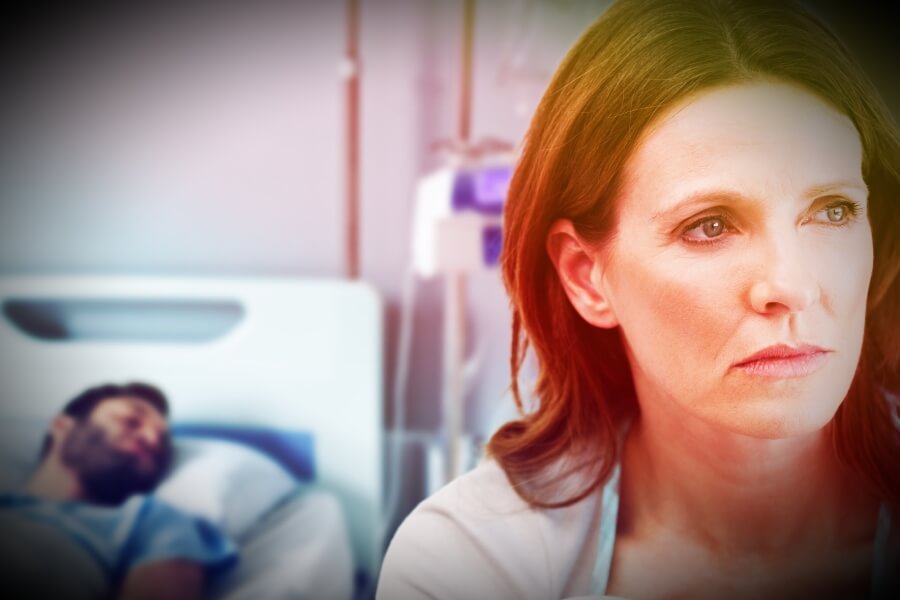







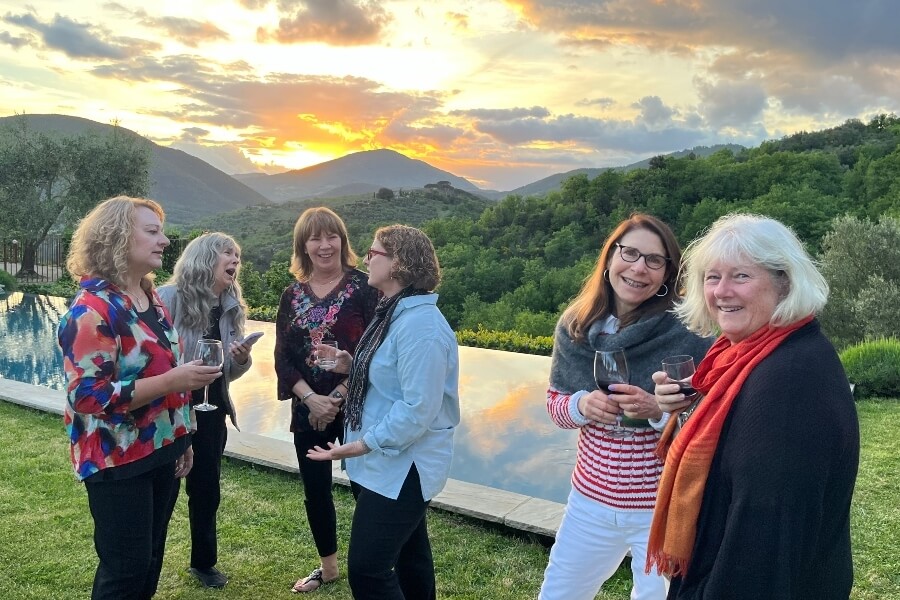
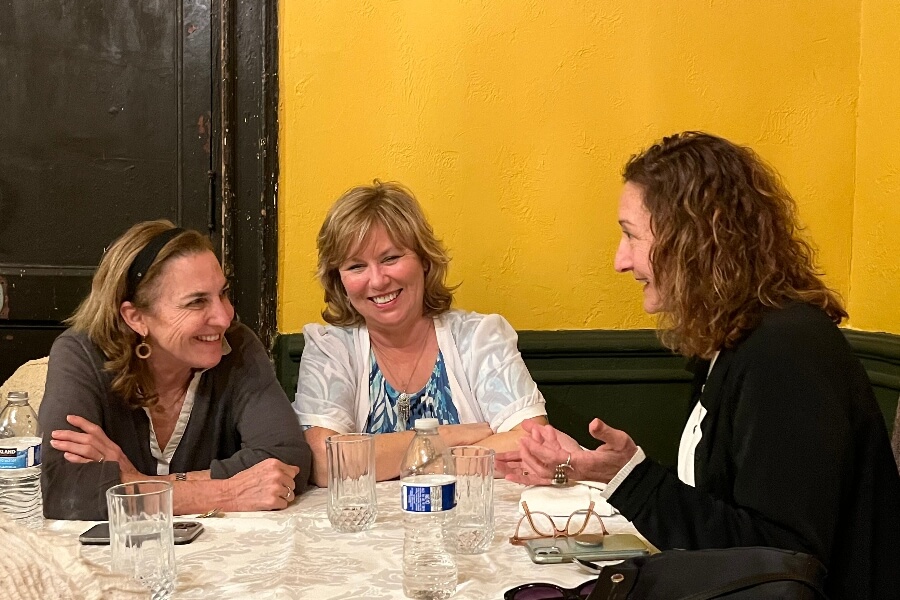
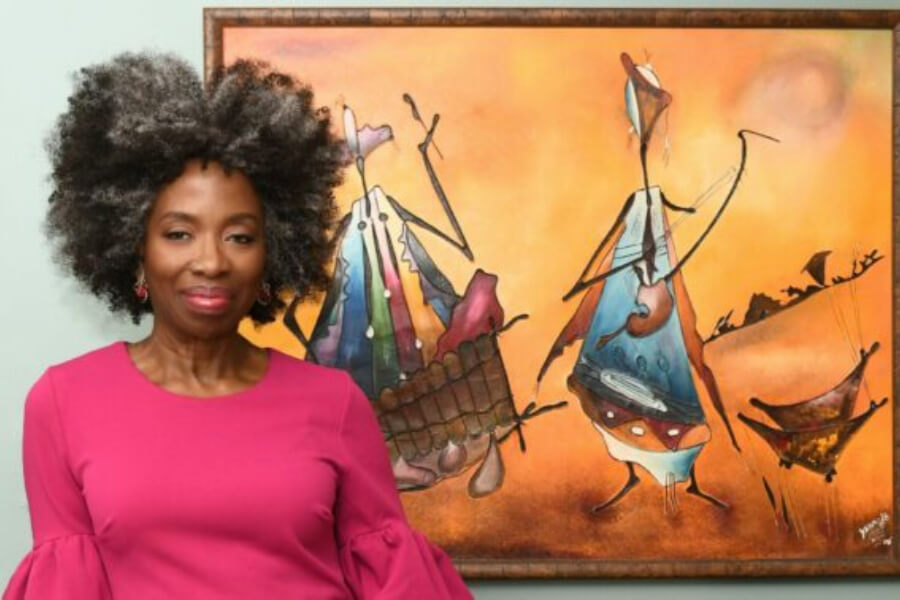



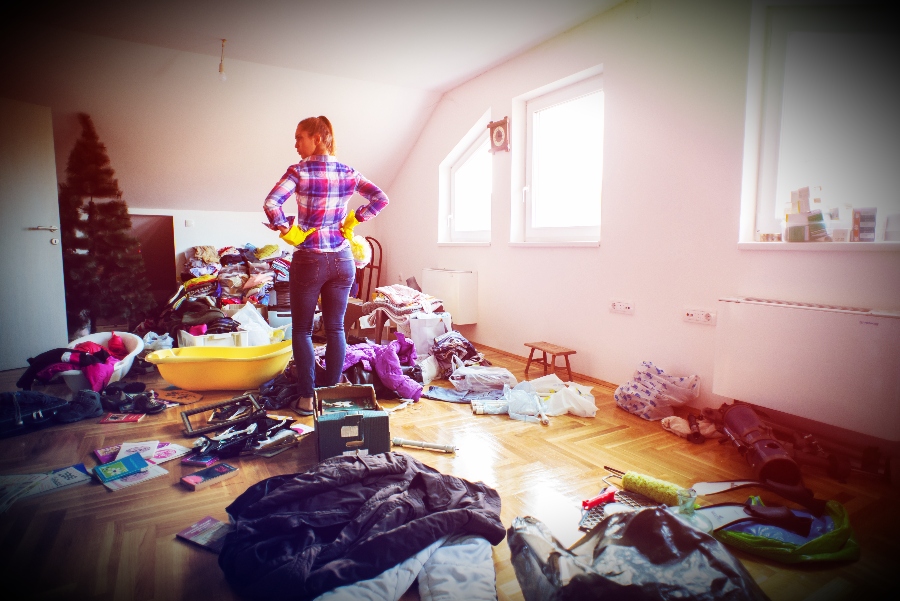
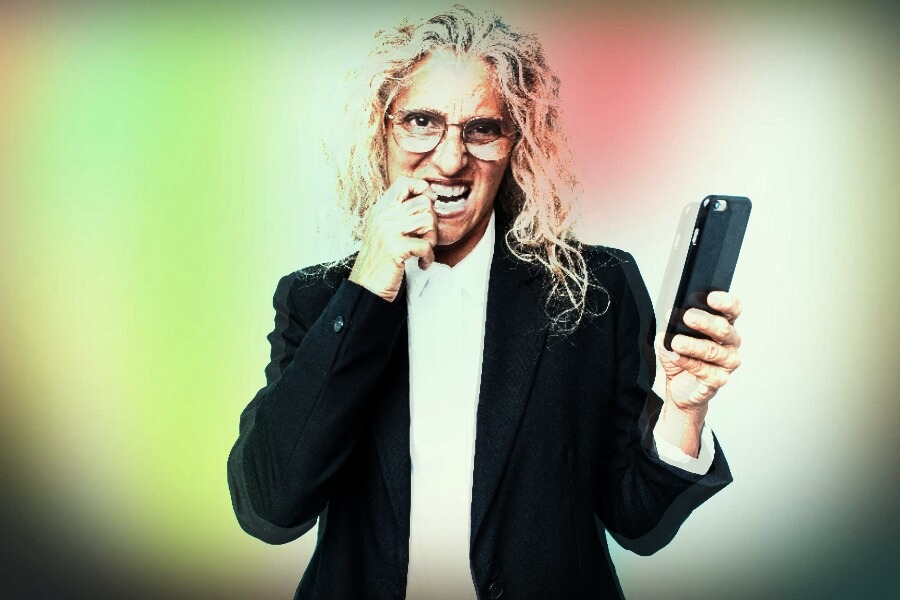
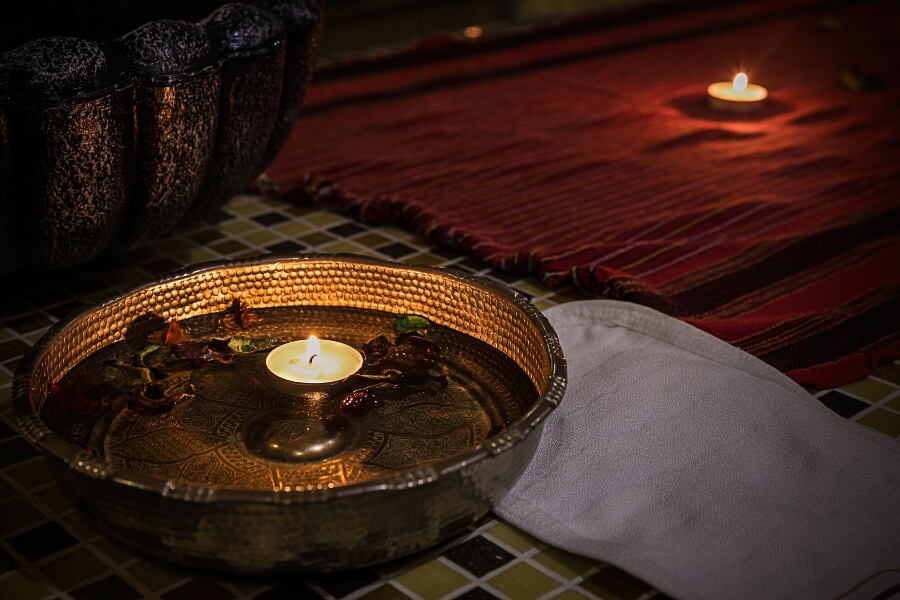
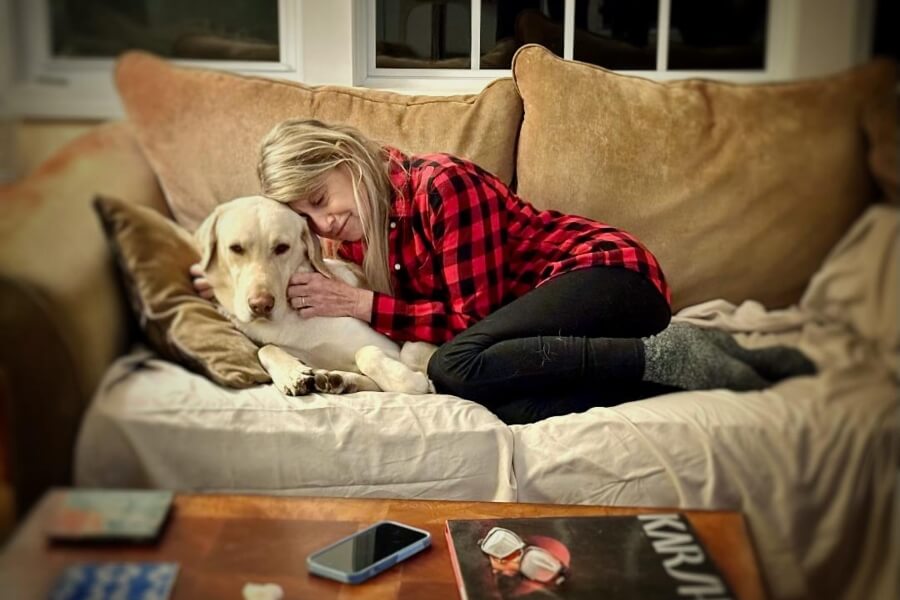

0 Comments